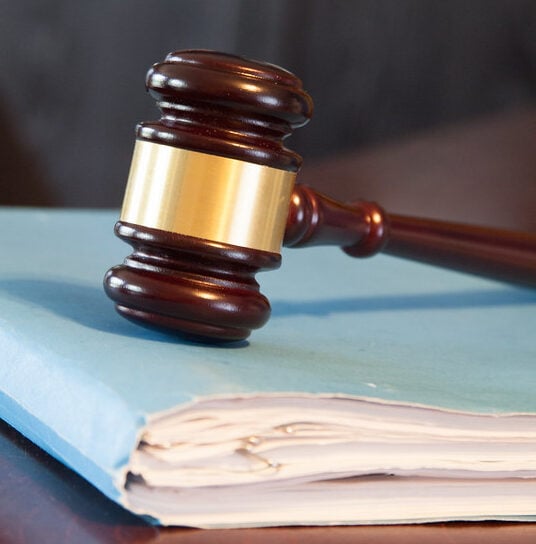Key Takeaways:
- A Brooklyn man installed hidden cameras in bathrooms at a sleep disorder clinic.
- He recorded dozens of patients for more than a year.
- He pleaded guilty and faces prison and supervised release.
- The case raises privacy worries at health centers.
Secret Recording at Long Island Sleep Center
A Brooklyn man got prison time for secretly filming at a Long Island sleep center. He installed hidden cameras in two bathroom stalls. Over fifteen months, he captured many hours of video. Dozens of patients used those bathrooms without knowing about the cameras. The center treated people with sleep issues like apnea and insomnia. The recordings violated trust and privacy. As a result, officials took strong steps. They worked with federal agents to track down the recordings. The man faced charges under video voyeurism rules. Ultimately, he admitted guilt in court.
Sentencing for Crime at Long Island Sleep Center
A judge in federal court handed down the sentence. He gave the man eighteen months in prison. Then, he ordered two years of supervised release. Additionally, the court set a fine of five thousand dollars. Before sentencing, the man pleaded guilty to one count of video voyeurism. He admitted to placing cameras without consent. Moreover, he showed no remorse until he faced trial. The judge said the crime breached patient safety. Meanwhile, the man must register as a sex offender. Therefore, others can track him after release. The court called the offense a serious privacy violation.
How the Hidden Cameras Worked
The man used small, battery-powered cameras in the bathroom walls. For example, he cut holes in the drywall to hide the lenses. Then, he placed wiring behind vent covers. He needed no regular electricity supply. As a result, the cameras ran on small batteries. He recorded video onto memory cards inside each device. He checked the footage every few days. In total, he gathered hundreds of hours of video. Patients never saw the cameras or any odd wires. They thought the bathrooms were safe. Later, agents found the cameras during a routine inspection. They also recovered the memory cards.
Why Patients Felt Unsafe
After agents found the cameras, patients learned about the breach. They felt angry and scared. Someone broke their privacy in a place they expected to be safe. Moreover, many patients had personal medical problems. They faced embarrassment and distress. Some stopped seeking treatment for their sleep issues. As a result, the clinic saw a drop in visits. Families worried about loved ones who used the center. They demanded answers and better security. Clinic leaders apologized and offered free counseling services. They also promised stricter checks to prevent a repeat.
Lessons for Other Clinics
This case teaches an important lesson to all health centers. Security checks must include hidden camera hunts. First, managers should train staff to spot odd holes or loose fixtures. Second, regular sweeps with camera detectors can help. Third, clinics can hire outside experts for surprise inspections. Finally, leaders should update their privacy policies. In this way, they show patients they care about safety. Moreover, clear reporting rules can help staff flag concerns fast. As a result, clinics can earn trust and avoid legal trouble. Patients deserve full privacy in medical settings.
Steps to Protect Your Privacy
You can take simple steps to guard your privacy. For example, look for loose vent covers or odd screws. Then, shine a flashlight around vent openings and wall fixtures. Often, cameras hide in vents or smoke detectors. Next, carry a small camera detector device. It can spot wireless transmitters and lenses. Additionally, birdbath scanning apps can catch hidden cameras. Meanwhile, ask clinics about their security checks. If a place lacks clear privacy rules, think twice. Finally, report odd noises or blinking lights right away. By staying alert, you help protect everyone.
Federal Laws on Video Voyeurism
Federal law bans filming someone without their consent. It covers places where people expect privacy. Bathrooms, locker rooms, and dressing areas all count. The law sets serious penalties for offenders. For example, prison time, fines, and sex offender registration. Moreover, courts can add supervised release after jail. That helps keep track of offenders in the community. Law enforcement agencies take these cases very seriously. As a result, they work fast when they find hidden cameras. Officials also warn businesses to train staff and inspect facilities.
Community Reaction and Next Steps
Local leaders reacted strongly to this case. They called for stronger rules at all health centers. Some proposed new laws to require privacy audits. Others urged clinics to allow public reviews of their safety plans. Meanwhile, mental health groups offered support to victims. They said emotional harm can be as bad as physical harm. As a next step, state officials will review clinic licenses. They plan to include privacy checks in renewal requirements. This case may change how all medical centers handle security.
Protecting Trust in Health Care
Trust is vital in any medical setting. Patients share their bodies and stories with doctors. They expect kindness, skill, and respect. When someone breaks that trust, it hurts deeply. As a result, clinics need clear safety rules. They must train staff and run regular checks. Furthermore, patients should have easy ways to report concerns. In this way, the health system can stay strong. It can focus on real healing, not cover-ups. Everyone deserves privacy when seeking care.
Frequently Asked Questions
What charges did the man face?
He pleaded guilty to video voyeurism. That means he filmed people without their consent in a private place.
How long did he record patients?
He installed cameras over fifteen months. During that time, he captured hundreds of hours of video.
What sentence did he receive?
He got eighteen months in prison. After that, he faces two years of supervised release and a fine.
How can clinics improve privacy?
They can train staff to spot hidden cameras. They should do regular sweeps and update privacy rules. Source: https://www.nydailynews.com/2025/11/20/brooklyn-man-sentenced-recording-sleep-center-patients/
